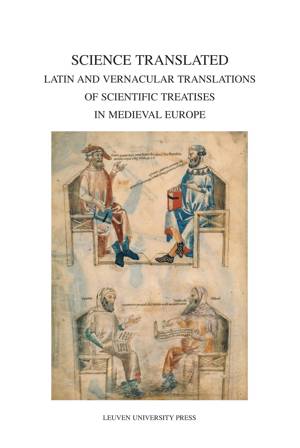
- Afhalen na 1 uur in een winkel met voorraad
- Gratis thuislevering in België vanaf € 30
- Ruim aanbod met 7 miljoen producten
- Afhalen na 1 uur in een winkel met voorraad
- Gratis thuislevering in België vanaf € 30
- Ruim aanbod met 7 miljoen producten
Zoeken
Science translated E-BOOK
Latin and vernacular translations of scientific treatises in Medieval Europe
€ 15,00
€ 49,00
Omschrijving
Medieval translators played an important role in the development and evolution of a scientific lexicon. At a time when most scholars deferred to authority, the translations of canonical texts assumed great importance. Moreover, translation occurred at two levels in the Middle Ages. First, Greek or Arabic texts were translated into the learned language, Latin. Second, Latin texts became source-texts themselves, to be translated into the vernaculars as their importance across Europe started to increase. The situation of the respective translators at these two levels was fundamentally different: whereas the former could rely on a long tradition of scientific discourse, the latter had the enormous responsibility of actually developing a scientific vocabulary. The contributions in the present volume investigate both levels, greatly illuminating the emergence of the scientific terminology and concepts that became so fundamental in early modern intellectual discourse. The scientific disciplines covered in the book include, among others, medicine, biology, astronomy, and physics.
Specificaties
Betrokkenen
- Uitgeverij:
Inhoud
- Aantal bladzijden:
- 478
- Taal:
- Engels
- Reeks:
Eigenschappen
- Productcode (EAN):
- 9789461660466
- Verschijningsdatum:
- 7/04/2017
- Uitvoering:
- E-book
- Beveiligd met:
- Digital watermarking
- Formaat:

Alleen bij Standaard Boekhandel
Beoordelingen
We publiceren alleen reviews die voldoen aan de voorwaarden voor reviews. Bekijk onze voorwaarden voor reviews.










